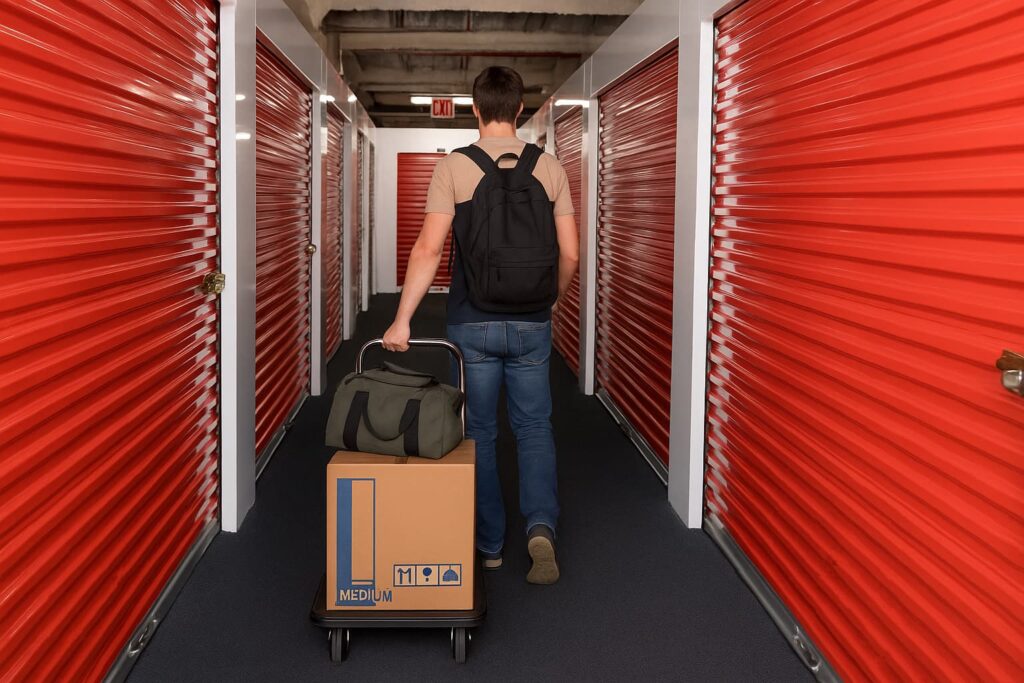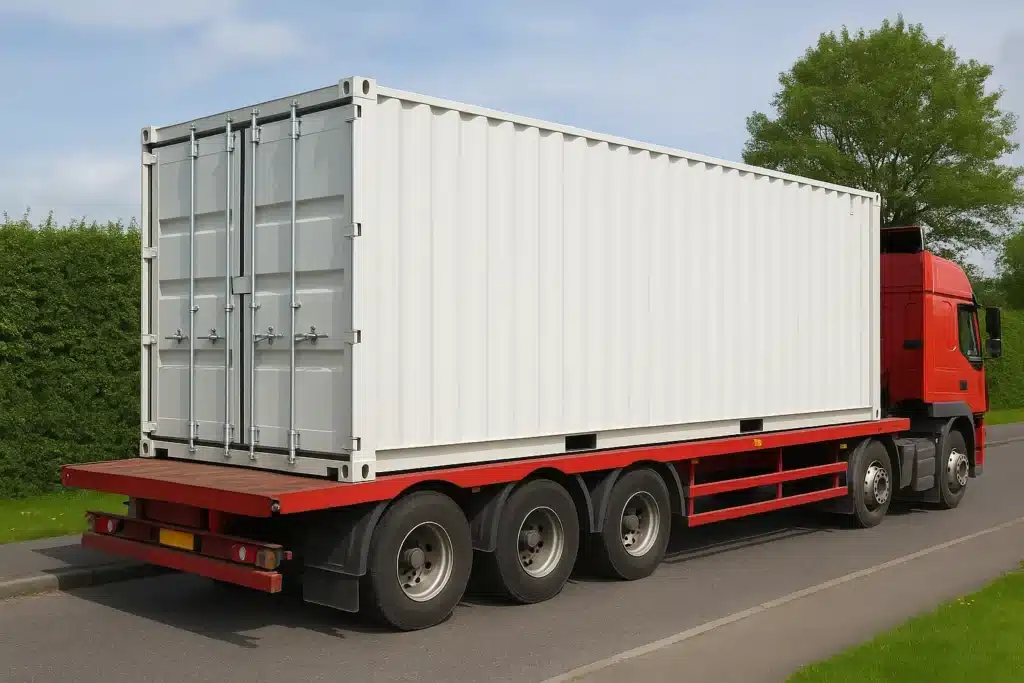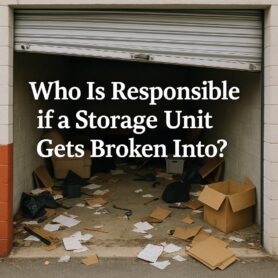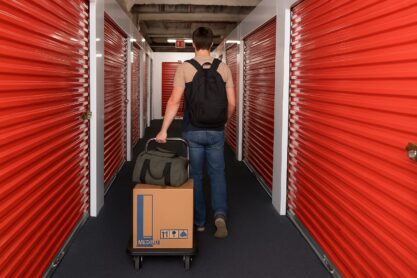At first glance, storage units might seem like a cheap substitute for a flat. They’re private, secure, and hidden away from the world. And with UK tenants now spending an average of 36.3% of their income on rent, well above the 30% affordability threshold, many are asking: can you live in a storage unit?
The short answer is no: not legally, and not safely.
Why You Can’t Live in a Storage Unit
Besides storage facility owners not allowing storage unit accommodation, they’re simply not built to meet basic living standards. Ventilation and airflow? There are no windows or ways to get fresh air inside. Electricity? Most units don’t even have a light, let alone power sockets. On top of that, you’re also missing:
-
Heating or cooling systems
-
Toilets, sinks or running water
-
Kitchens or food preparation areas
-
Smoke alarms, sprinklers or safe fire exits
In short, storage units are designed for things, not people.
Health and Safety Risks
Even with a sleeping bag and a lamp, you’d quickly run into the following problems:
-
Extreme temperatures – metal containers trap heat in summer and lose it fast in winter, making them dangerously hot or cold.
-
Lack of ventilation – no windows or airflow means stale, damp air that can quickly affect your health.
-
Fire danger – without alarms, sprinklers, or safe exits, a fire in the facility could turn deadly fast.
-
No sanitation – no toilets, sinks, or clean running water makes it impossible to stay hygienic.
-
Security risks – doors usually can’t be locked from the inside, leaving you vulnerable to being locked in or disturbed.
Put simply, living in a storage unit would expose you to serious health hazards long before anyone even spotted you on CCTV. That’s why UK law treats them as unsuitable for habitation — and why operators act so quickly if they suspect someone is trying to live in one.
The Legal Position in the UK
In the UK, storage facilities fall under commercial property use, not residential. That means you’re in breach of planning laws if you try to use any storage unit, whether rented from a facility or one you’ve bought yourself, as a home.
The Homes (Fitness for Human Habitation) Act 2018 sets out the minimum legal standards for a place to qualify as housing. Ventilation, heating, sanitation, fire safety, and natural light are all non-negotiable. A storage unit fails on every single count.
In other words, even if you purchased your own shipping container or storage unit and had it delivered, it would still be against the law to live in it.
Enforcement by Storage Companies
UK operators are strict on this. Henfield Storage, along with big names like Big Yellow, Safestore, and Access Self Storage, all clearly state in their terms that units are for storage only. Facilities have CCTV, staff patrols, and regular unit checks. If you’re suspected of staying overnight, you’ll be challenged. If caught, here’s what usually happens:
Immediate eviction — your rental agreement is terminated.
Loss of access — your goods can be locked inside until the matter is resolved.
Fines or fees — some contracts allow operators to charge penalties for rule breaches.
Police involvement — if laws are broken, authorities can be called in.
Because it’s a commercial tenancy, you don’t have the same legal protection you would in a residential rental. Operators can act fast.
Can You Live in a Storage Unit You Own?
Owning a storage unit does not change the rules. Even if you buy one outright or have a shipping container delivered to your land, it still cannot be legally used as a home without meeting strict requirements.
In the UK, planning laws and building regulations apply to any residential property. To qualify as housing, a unit would need proper insulation, ventilation, plumbing, drainage, electricity, and fire safety systems. A standard storage unit or container does not meet these standards.
Even if you renovated your storage unit to include these features, you would still need planning permission from your local council. That process involves submitting detailed plans, showing how the unit meets building regulations, and proving it is suitable for permanent living. In practice, most councils are unlikely to approve a basic storage container as a home unless it has been fully converted to meet the same standards as a traditional property.
Better Alternatives
Housing costs are enormous, particularly in London where the average rent is £2,083 PCM.
If you’re struggling, like many are, don’t for these safer and legal alternatives:
-
Emergency Shelters – councils and charities like Shelter and Crisis can help you access short-term accommodation if you have nowhere else to stay.
-
Transitional Housing – organisations such as St Mungo’s provide supported housing to help people move towards a long-term solution.
-
Affordable Housing Initiatives – applying for council housing or schemes through housing associations can provide more stable and affordable arrangements.
-
Flatshares and Co-Living Spaces – websites like SpareRoom or co-living providers such as The Collective make renting more affordable and social.
-
Short-Term Rentals – platforms like Airbnb or OpenRent can provide flexible, cheaper options for short stays while you find something permanent.
- Camping or vehicle – still tough, but usually safer and more discreet than trying to live in a container.
Final Word
Storage units are a great way to keep belongings safe, but they are not and never will be a substitute for housing. They don’t meet legal standards, they’re unsafe, and storage companies are strict about enforcement.
If you need more space, facilities like Henfield Storage in London and Sussex are the right choice. If you need somewhere to live, the answer lies in proper housing options, from emergency shelters to flatshares, not a padlocked steel room. Curious about other common misconceptions? Read our article on whether you can run a business from a storage unit.





